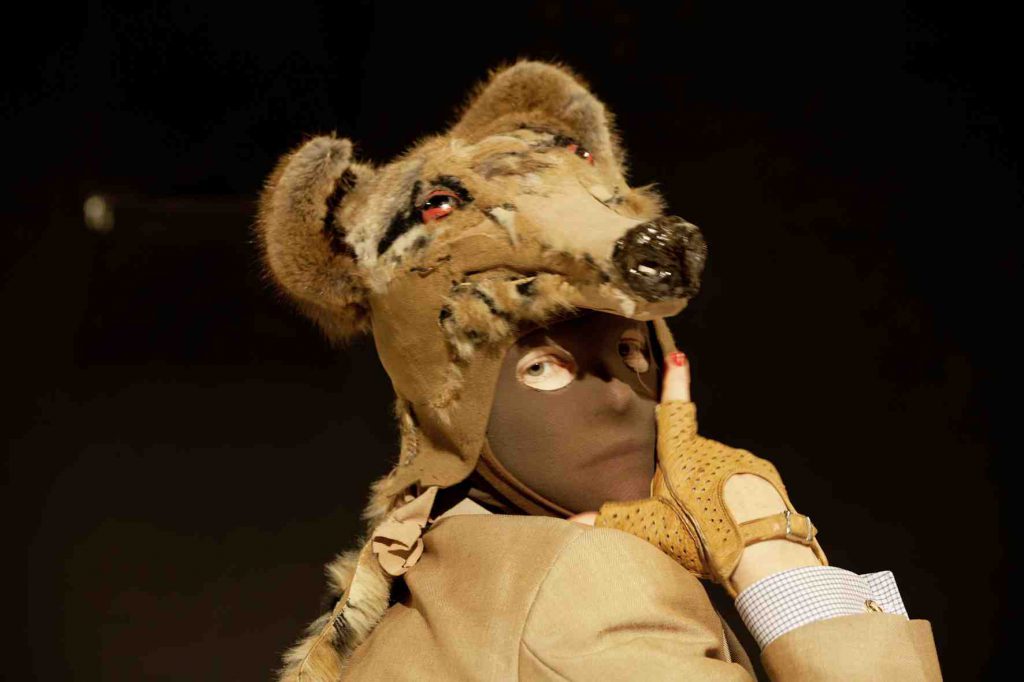ABECEDARIUM BESTIARIUM – Exhibition
engl.
The Lives of Animals
We all know many stories about animals; they are part of our collective imagination. Since our childhood, we have spent time observing animals in various situations. Many of us have also formed personal opinions about them. Animals are probably among the most popular and, at the same time, the most complex subjects to have accompanied us since our species emerged. Humans are evolving along with animals, which is why our attitude towards them has changed over the course of history.
The exhibition The Lives of Animals looks at the subject of animals from the perspective of the visual arts, asking the fundamental question about what an animal is and whether humans can be friends with animals. Participating artists critically examine the attitudes of ‘human exceptionalism’, stemming from the belief that animals do not understand the concept of death or have a sense of future.
Can we, and under what circumstances, adopt an animal perspective?
Artists
Noor Abuarafeh, Antonia Baehr (together with Dodo Heidenreich, Nanna Heidenreich, Mirjam Junker, Itamar Lerner, Catriona Shaw, Ida Wilde, Steffi Weismann), Yevgenia Belorusets, Pierre Bismuth, melanie bonajo, Elen Braga, Sue Coe, Simone Forti, Nicolás García Uriburu, Piero Gilardi, Golden Snail Opera Collective (Isabelle Carbonell, Joelle Chevrier, Yen-Ling Tsai, Anna Tsing), Rebecca Horn, Katarzyna Krakowiak, K.P. Krishnakumar, Luís Lázaro Matos, Laura Lima, Anne Marie Maes, Dafna Maimon, Britta Marakatt-Labba, Ad Minoliti, Jean Painlevé, Charlemagne Palestine, Panamarenko, Rosana Paulino, Janis Rafa, Lin May Saeed, Tomás Saraceno, Carolee Schneemann, Filip Van Dingenen, Aleksandra Waliszewska.
Contextualisation
In the last two decades, animal studies has emerged worldwide as a new academic discipline. Scientists engage in questions regarding concepts of ‘animality’, ‘animalisation’, or ‘becoming animal’, to investigate human-created representations and cultural imaginings on the subject. Animal studies strives to understand human-animal relationships from a historical perspective, paying attention to the complexity of the issue, in connection with animal rights movements, ethics of care, ecology, feminism, human rights, postcolonial studies, and other disciplines.
It is important to mention that the origins of the animal rights movement can be found in nineteenth-century Europe. The increasingly widespread ideals of liberty associated with the suffragettes’ fight for women’s rights, as well as the abolitionists’ struggle for the freedom of Black slaves, created fertile ground for the nascent animals liberation movements. Since then, various activists and researchers have been examining the state of animal objectification in the context of the food industry, clothing industry and entertainment industries, to name just a few areas where animals are exploited.
More info about Abecedarium Bestiarium here

Photo: Anja Weber